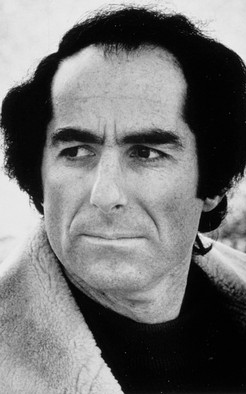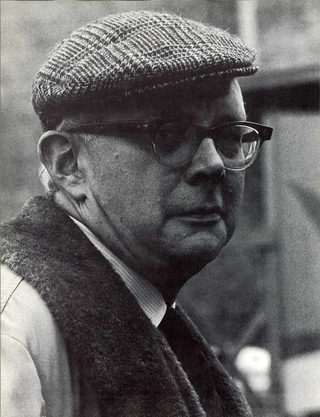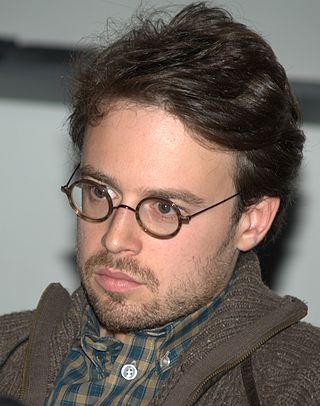
Franz Kafka was a German-language novelist and writer from Prague. He is widely regarded as one of the major figures of 20th-century literature. His work fuses elements of realism and the fantastic. It typically features isolated protagonists facing bizarre or surrealistic predicaments and incomprehensible socio-bureaucratic powers. It has been interpreted as exploring themes of alienation, existential anxiety, guilt, and absurdity. His best known works include the novella The Metamorphosis and novels The Trial and The Castle. The term Kafkaesque has entered English to describe absurd situations like those depicted in his writing.

Kathy Acker was an American experimental novelist, playwright, essayist, and postmodernist writer, known for her idiosyncratic and transgressive writing that dealt with themes such as childhood trauma, sexuality and rebellion. Her writing incorporates pastiche and the cut-up technique, involving cutting-up and scrambling passages and sentences; she also defined her writing as existing in the post-nouveau roman European tradition. In her texts, she combines biographical elements, power, sex and violence.

Absurdist fiction is a genre of novels, plays, poems, films, or other media that focuses on the experiences of characters in situations where they cannot find any inherent purpose in life, most often represented by ultimately meaningless actions and events that call into question the certainty of existential concepts such as truth or value.

Philip Milton Roth was an American novelist and short-story writer. Roth's fiction—often set in his birthplace of Newark, New Jersey—is known for its intensely autobiographical character, for philosophically and formally blurring the distinction between reality and fiction, for its "sensual, ingenious style" and for its provocative explorations of American identity. He first gained attention with the 1959 short story collection Goodbye, Columbus, which won the U.S. National Book Award for Fiction. Ten years later, he published the bestseller Portnoy's Complaint. Nathan Zuckerman, Roth's literary alter ego, narrates several of his books. A fictionalized Philip Roth narrates some of his others, such as the alternate history The Plot Against America.

Irving Howe was an American literary and social critic and a prominent figure of the Democratic Socialists of America.
Harold Schechter is an American true crime writer who specializes in serial killers. He is a Professor Emeritus at Queens College, City University of New York where he taught classes in American literature and myth criticism for forty-two years. Schechter's essays have appeared in numerous publications including The New York Times, The Wall Street Journal, The Los Angeles Times, and the International Herald Tribune. He is the editor of the Library of America volume, True Crime: An American Anthology. His newest book, published in September 2023, is Murderabilia: A History of Crime in 100 Objects.
"I Kill Children" is the ninth song on the Dead Kennedys album Fresh Fruit for Rotting Vegetables. It is sung from the first person perspective of an unnamed murderer of children. It satirizes America's twin obsessions with extreme violence and conservatism. Jello Biafra had said on his spoken word tours that he wrote the song when he was 18 years old after thinking about how and why people became serial killers, and actually considers it one of his weakest songs.

Joshua Aaron Cohen is an American novelist and story writer, best known for his works Witz (2010), Book of Numbers (2015), and Moving Kings (2017). Cohen won the 2022 Pulitzer Prize for Fiction for his novel The Netanyahus (2021).

Lawrence F. McCaffery Jr. is an American literary critic, editor, and retired professor of English and comparative literature at San Diego State University. His work and teaching focuses on postmodern literature, contemporary fiction, and Bruce Springsteen. He also played a role in helping to establish science fiction as a major literary genre.

n+1 is a New York–based American literary magazine that publishes social criticism, political commentary, essays, art, poetry, book reviews, and short fiction. It is published in print three times annually with regular articles being published online. Each print issue averages around 200 pages in length.

Lance Olsen is an American writer known for his experimental, lyrical, fragmentary, cross-genre narratives that question the limits of historical knowledge.

A Feast Unknown is a novel written by American author Philip José Farmer. The novel is a pastiche of pulp fiction, erotica, and horror fiction. It was originally published in 1969, and was followed by two sequels, Lord of the Trees and The Mad Goblin.
Shalom Auslander is an American novelist, memoirist, and essayist. He grew up in a strict, Orthodox neighborhood in Monsey, New York, where he describes himself as having been "raised like a veal", a reference to his strict religious upbringing. His writing style is notable for its existentialist themes, biting satire and black humor. His non-fiction often draws comparisons to David Sedaris, while his fiction has drawn comparisons to Franz Kafka, Samuel Beckett, and Groucho Marx. His books have been translated into over a dozen languages and are published around the world.
Steven Moore is an American author and literary critic. Best known as the primary authority on the novelist William Gaddis, he is the author of the two-volume study The Novel: An Alternative History.
The Kafka Project is a non-profit literary research initiative founded in 1998 at San Diego State University. Working on behalf of the Kafka estate in London, England, the SDSU Kafka Project is working to recover materials written by Franz Kafka, the widely acclaimed modernist author, stolen by the Gestapo in 1933. The search continues in Eastern Europe and Israel.
Feminism has affected culture in many ways, and has famously been theorized in relation to culture by Angela McRobbie, Laura Mulvey and others. Timothy Laurie and Jessica Kean have argued that "one of [feminism's] most important innovations has been to seriously examine the ways women receive popular culture, given that so much pop culture is made by and for men." This is reflected in a variety of forms, including literature, music, film and other screen cultures.

Avant-Pop: Fiction for a Daydream Nation is a Fiction Collective Two book published by Black Ice Books in 1992 edited by Larry McCaffery. It is a collection of innovative fiction, graphic art, and various unclassifiable texts written by some of the most radical literary talents who McCaffery classifies as Avantpop. In his introductory chapter, McCaffery calls these writers "a new breed of pop-culture demolition artists". These writers include cult figures such as Kathy Acker, Samuel R. Delany, Harold Jaffe and Derek Pell, as well as young new writers such as Euridice, Mark Leyner, and William T. Vollmann.

Andrej Blatnik is a Slovene writer, editor, and university professor.
Alexandria Constantinova Szeman is an American author of literary fiction, poetry, true crime, memoir, and nonfiction. Her poetry and first three books were originally published under the pseudonym Sherri Szeman.
George Stade was an American literary scholar, critic, novelist and professor at Columbia University.












